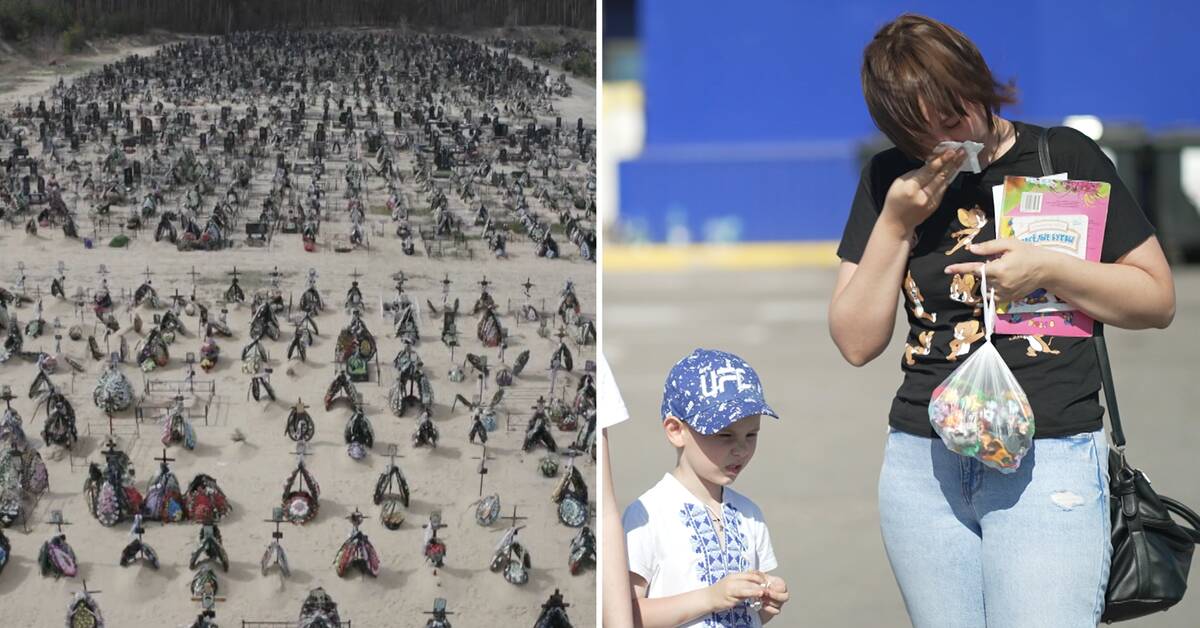In a small village north of Kyiv, a unique detective work is underway.
Sasha Romantsova and her staff go from house to house and ask questions.
They photograph traces of combat vehicles around the burned-down church and visit the school that the Russian troops used as a base.
The neighboring villages of Lukyanivske and Rudnytske were held by Russian forces for 26 days.
Five suspected war crimes have been identified here.
One of them is the suspected execution of a civilian man.
But gathering evidence during a war that is raging at the same time is a battle against the clock.
- Details are forgotten and you repair the tracks to move on with your lives.
That is why this work must be done now, says Sasha Romantsova, who heads the award-winning human rights organization Center for Civil Liberties.
Investigators from several countries
Yuri Bilousov, head of Ukraine's war crimes unit agrees.
Ukraine's public prosecutor has opened more than 15,000 investigations into suspected war crimes committed after Russia's invasion on February 24.
Both the International Criminal Court in The Hague and several European countries have sent investigators to Ukraine.
Without the support of them, and of human rights organizations, one would not have time for the documentation work.
- We try to find ways to cooperate in a better way.
It is about what information we need and what information they can contribute, says Yuri Bilousov in an interview with SVT's Agenda.
Unique work
In Zaporizhzhia in southeastern Ukraine, Human Rights Watch lawyers are interviewing people who have managed to get out of Russian-occupied areas.
Belkis Wille has previously worked in conflicts in, for example, Yemen and Syria and believes that the investigative work that is now taking place in Ukraine is unique.
- I have never been hopeful in any other conflict that we will see a large number of prosecutions for war crimes.
The decisive factor will be the quality of these prosecutions, she tells SVT's team in Ukraine.

